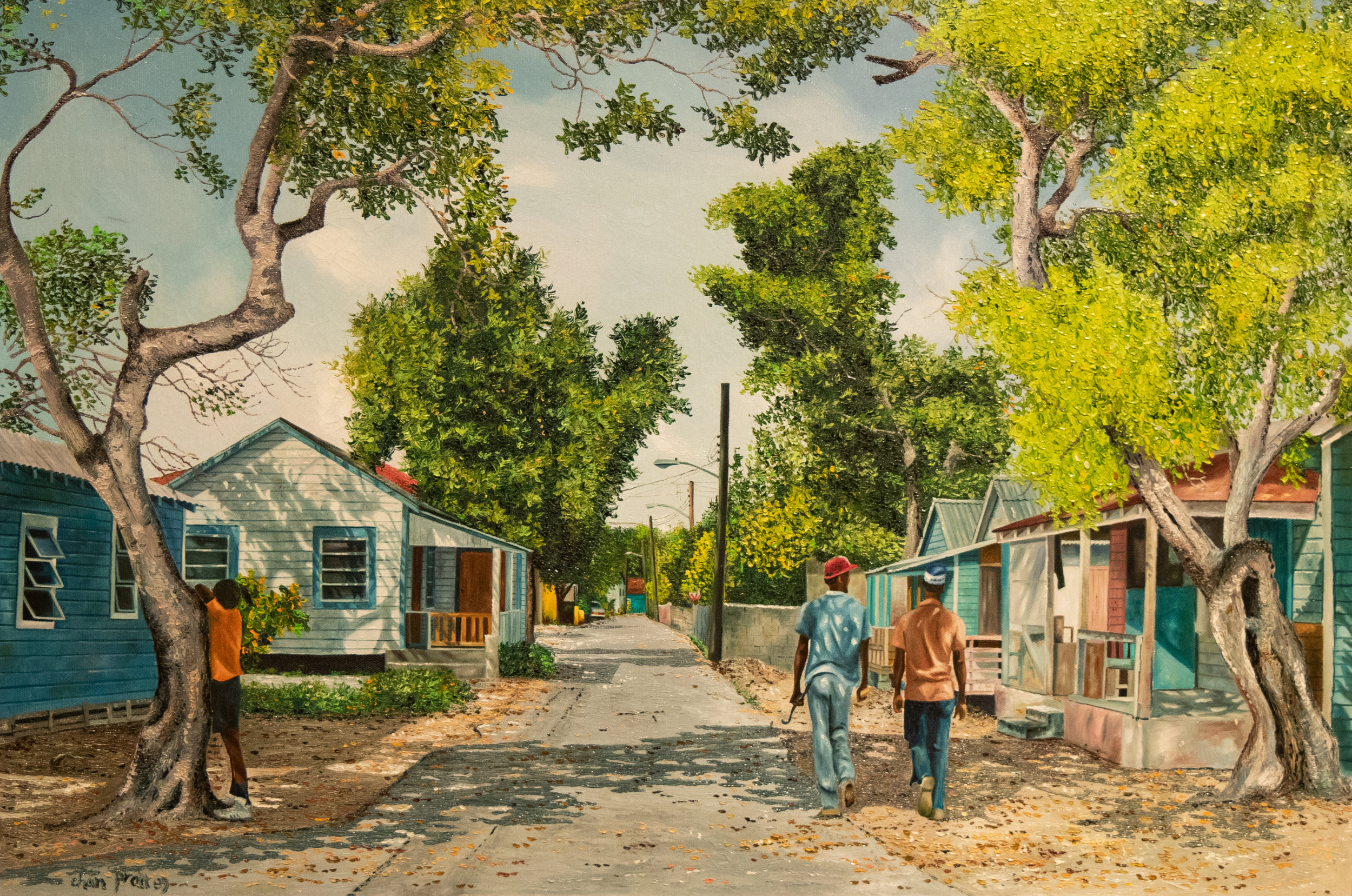
A man walks along a row of houses with a crowbar in one hand, a piece of wood in the other, he is speaking to someone: a friend, an acquaintance, a family member, a neighbour perhaps? The houses are neat, patched up with care – no doubt due to the stresses of time and hurricanes alike, there’s only so much this old clapboard can take. The street is neat, orderly, a pubescent boy leans against a tree in the shade, and things feel calm, serene in the row of homes. This is not what people think of when they think of the current state of Over-the-Hill (OTH). Bain and Grants Town are woefully underserved communities, that much is certain, but they are also demonised for circumstances largely beyond their control in a cold, classist manner of stereotyping.

Chan Pratt’s Walking Over the Hill (1989) portrays a different time but brings to mind the very real potential for, and some might say inevitability, the gentrification of this historic community so close to our ever-developing tourist centre of Nassau. The community is also located close to the University of The Bahamas – wedging it between two areas that will only grow and expand in coming years, enveloping the surrounding area and, as gentrification would dictate, displace its poorer neighbors from the place they call home.
In “Old Nassau”, OTH was where tourists went for entertainment, which lead to a boost and flurry of activity for the area also known as “the nation’s navel” – owing to the number of key political figures coming out of the space. From the freed slave community to lively centre of businesses and nightlife, the space has entered a decline and is now unfortunately ripe for the picking in our tourist-driven economy. Some say our lifeblood, but some also say our ultimate downfall if we don’t consider more sustainable models.
The space that was home to the only hotel, The Reinhard Hotel, that Black people were permitted to stay in in the time of segregated Nassau as even Black celebrities of the time were not allowed to stay in the British Colonial. Home as well to the then headquarters of the Progressive Liberal Party in 1967 who paved the road to Majority Rule and Independence, the community is under quiet threat of looming hotel complexes. The myth is that Bain and Grants Town have always been impoverished, violent spaces – and this simply isn’t true.
Even in Pratt’s depiction of OTH, one of several points of the disenfranchisement of its residents shows a very different picture than the negative stereotype we’ve come to hear most dominantly told. A man holding a crowbar in Bain Town is not automatically a criminal, nor should he be written off as such unduly and unfairly. This is a space of such potential, historically always having an undeniable strength, especially in thinking of the Burma Road Riot and protests and the Suffragette movement – but that potential should be cultivated and invested in its people, not the prime land they reside on. Give me community development over gentrification any day, and you’ll see a nation build. But a nation where it’s land belongs to anyone other than its locals, well, we already know what that looks like.
See this work and more by the late Chan Pratt in the current survey, Chan Pratt: Resurrection on at NAGB through July 28. Sundays are free for Bahamians and residents.